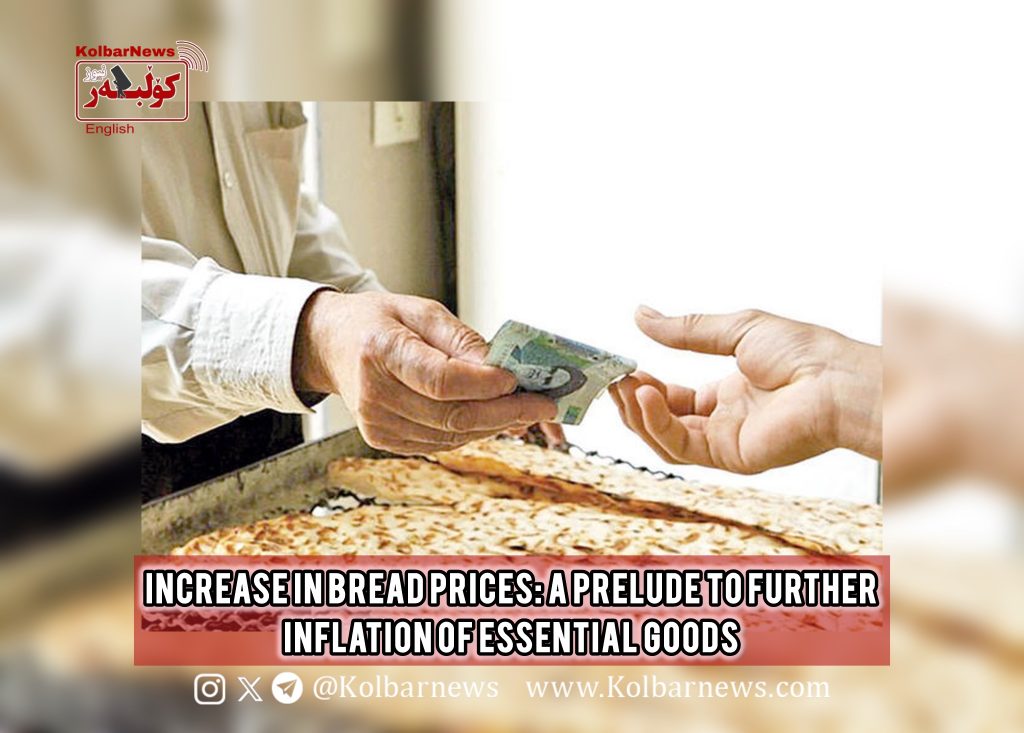
On August 7, 2024, during the final days of the 14th Cabinet’s transition, government media reported a 25% increase in bread prices across ten provinces in Iran. It is expected that this price hike will gradually extend to other provinces as well. Based on past experience, a 25% increase is unlikely to be the end, and this vital staple for the majority of people will likely become even more expensive. Alongside the reports of rising bread prices, the groundwork is being laid for further increases in the cost of other essential goods.
According to statistics from the UN’s Food and Agriculture Organization, Iran consumes 16.5 million tons of wheat annually. Iranian government data indicates that 10 million tons of this amount are supplied to traditional bakeries, with the remainder sold at market prices to other sectors, such as fancy bakeries, pasta production, and more.
The regime is gradually trying to reduce and eventually eliminate bread subsidies altogether. The *Etemad* newspaper writes: “In traditional bakeries, 80% of the final price of bread is covered by government subsidies, and people only pay 20% of the actual cost. In other words, if the real price of bread were implemented, a machine-baked Sangak loaf currently sold for 3,000 tomans would be priced at 15,000 tomans.” The reality is that, in a country where bread is one of the main sources of calories for low-income groups, making its price “real” would put enormous pressure on those living below the poverty line. The elimination of such subsidies, as *Etemad* notes, would have severe social consequences.
Islamic Republic officials accuse the public of wasting bread and argue that raising prices is necessary to reduce consumption. However, the traditional importance of bread in Iranian diets is largely due to the severe poverty that has been imposed on the majority of the population. For instance, according to a study by Deutsche Welle, Iran and Germany have similar populations, yet Iranians consume two and a half times more bread than Germans. On the other hand, Germans consume 13 times more meat and dairy products than Iranians. Everyone is aware of the health consequences, particularly for children, of such low protein intake.
An economist, who has placed the increase in bread prices within a broader economic context, warns of the potential for public uprisings far larger than the revolutionary movement of Jina. On Saturday, August 10, Zahra Zaghari, a professor of economics at Al-Zahra University, after meeting with Masoud Pezeshkian, gave an interview with *Rooz-e-No*. When asked why she opposes a unified exchange rate, she responded that not only would it harm the disadvantaged, but it is also impossible in the current situation due to the inability to supply sufficient currency to the market. The outcome, she argues, would only harm the middle and lower classes, reducing their purchasing power. In essence, it is a form of government pickpocketing from the people’s tables to cover the budget deficit. If the currency value rises, people will take to the streets. It won’t be like before; it will be much worse than officials expect. Zaghari provided specific examples of individuals and families who have amassed wealth through corruption and exploitation, driving inflation and price hikes. She believes that the current cabinet will also fail to deliver for the people, as the same corrupt individuals who spread corruption surround Pezeshkian.
While Zaghari addresses significant issues, she fails to recognize that the inevitable failure of the 14th Cabinet, like the previous ones, is rooted in the structure of the Islamic government, not just in corruption, embezzlement, and cronyism. A religious government with pre-feudal mindsets has been unable and cannot manage the capitalist economy of a country like Iran. The continuation and rise of the revolutionary movement of Jina, and ultimately the overthrow of the Islamic Republic, are the only paths to liberating the people from the misery that the Islamic regime has imposed on the nation.

